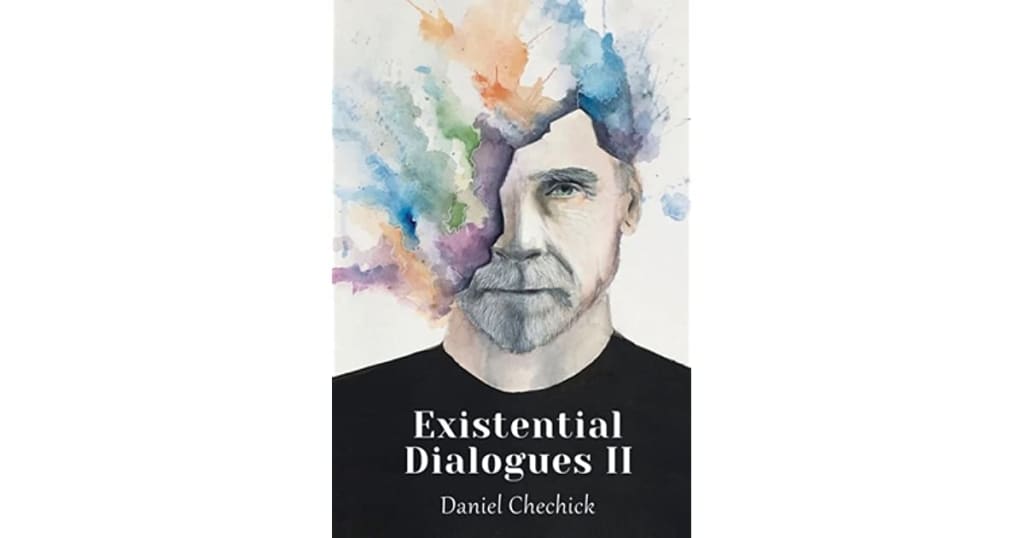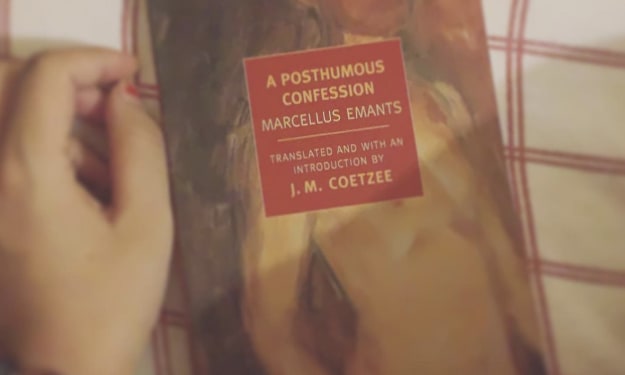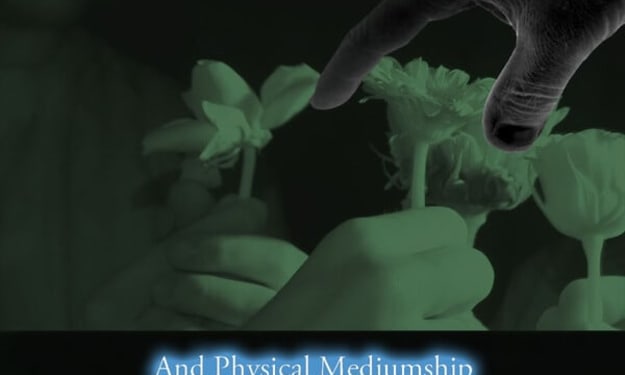Book Review: "Existential Dialogues II" by Daniel Chechick
5/5 - Profound answers to mysterious questions

If I have said it once, I have said it a million times - I wish I had these books whilst I was doing my Master's Degree Philosophy essays (which, by the way, I did not choose to do - I had to take that class). I wrote my essay on Existential Philosophy and Oriental Philosophy and these books would have made my life a whole lot easier. The point is, these books kind of remind me of reading things like Plato's "Phaedo" because of the dialogue style they are written in. There is something incredibly fluent about each chapter and, reading like an interview, the reader feels as if they are sitting in on the conversation as opposed to being outside of the argument.
In Chapter 2, 'masks' are discussed and really, it is a great argument for how people present as opposed to how they would actually feel in this realm of philosophy. There is something about this answer which leaves you in absolute awe:
"You do not understand. They do not cry outwardly, because of the mask. But inside they are still miserable. They hide themselves from existence as if others reinforced their belief that there is power in lacking 'weakness'. For the world has become so fast that there is no place left for close compassion. They are no longer interested in listening to the pains of others. That is why both sides forever portray their lives as being as wonderful as can be, and even when they ask each other for their well-being, they hint at what answer they expect."
This quotation definitely left me thinking, scratching my head and I even wrote it down and put it in my 'great quotations' jar (filled with quotations from DH Lawrence, Truman Capote, Oscar Wilde and more on the topics of philosophy and life). I just thought that this quotation pretty much sums up our entire lives on the internet and is definitely applicable to the 'fast culture' in which we live. We live on social media now and that has definitely damaged the close and compassionate relationships we are supposed to have as humans. It is a brilliantly expansive quotation which you could take any major change in social history and place it as an example. Just watch humanity get more and more distant through its own sense of narcissism. It reminds me of that line from "Fight Club" where he says that people are not really listening, they are just waiting for their turn to speak.
In Chapter 10, there is a quotation about 'extremes' as the chapter is titled: learning to live. I found this chapter quite enthralling as 'learning to live' is not something you get often in philosophy on existentialism. Existentialism is more about the choices you make not mattering because you'll regret them and then you die. But this chapter really tries to subvert that notion by giving us a reason why we have these two different extremes of things and how living and dying are part of the human consciousness.
"These two extremities are very near each other, and it seems that in a very crude and surprising way, this is where a person can hold both ends of the stick. For knowing how to die, they would surely know how to live, and knowing how to live, their death would certainly be received with complete understanding."
Across the text I have encountered many different chapters on the questions of everything from humanity, to dreams, to even more existential questions of "who am I?" and each and every time, I have come out of the chapter asking myself something new, searching for something even deeper. Chapters such as "On Suicide" and "Resurrection" got me really thinking about the aspects of death considered by the existential psyche more than I have thought about them in years and because it is so well-structured in this book, I never lose my train of thought, I never have to skip back to the beginning of the argument. It is so well written that I can follow each stage with precision and am not made to feel confused in any way.
I think that the definite positives of this book depend on the communication of ideas. It is clear that the author has a great knowledge of existential thought and the way in which he communicates it is something that you and I can both understand at a normal level. But if we think about it, it can get much deeper. Those deeper levels allow us to see this book from all different angles and to question ourselves as it is split up into understandable chapters on different topics. Honestly, I cannot wait for the next book by this author and you should definitely give these a go as well.
About the Creator
Annie Kapur
200K+ Reads on Vocal.
English Lecturer
🎓Literature & Writing (B.A)
🎓Film & Writing (M.A)
🎓Secondary English Education (PgDipEd) (QTS)
📍Birmingham, UK






Comments
There are no comments for this story
Be the first to respond and start the conversation.